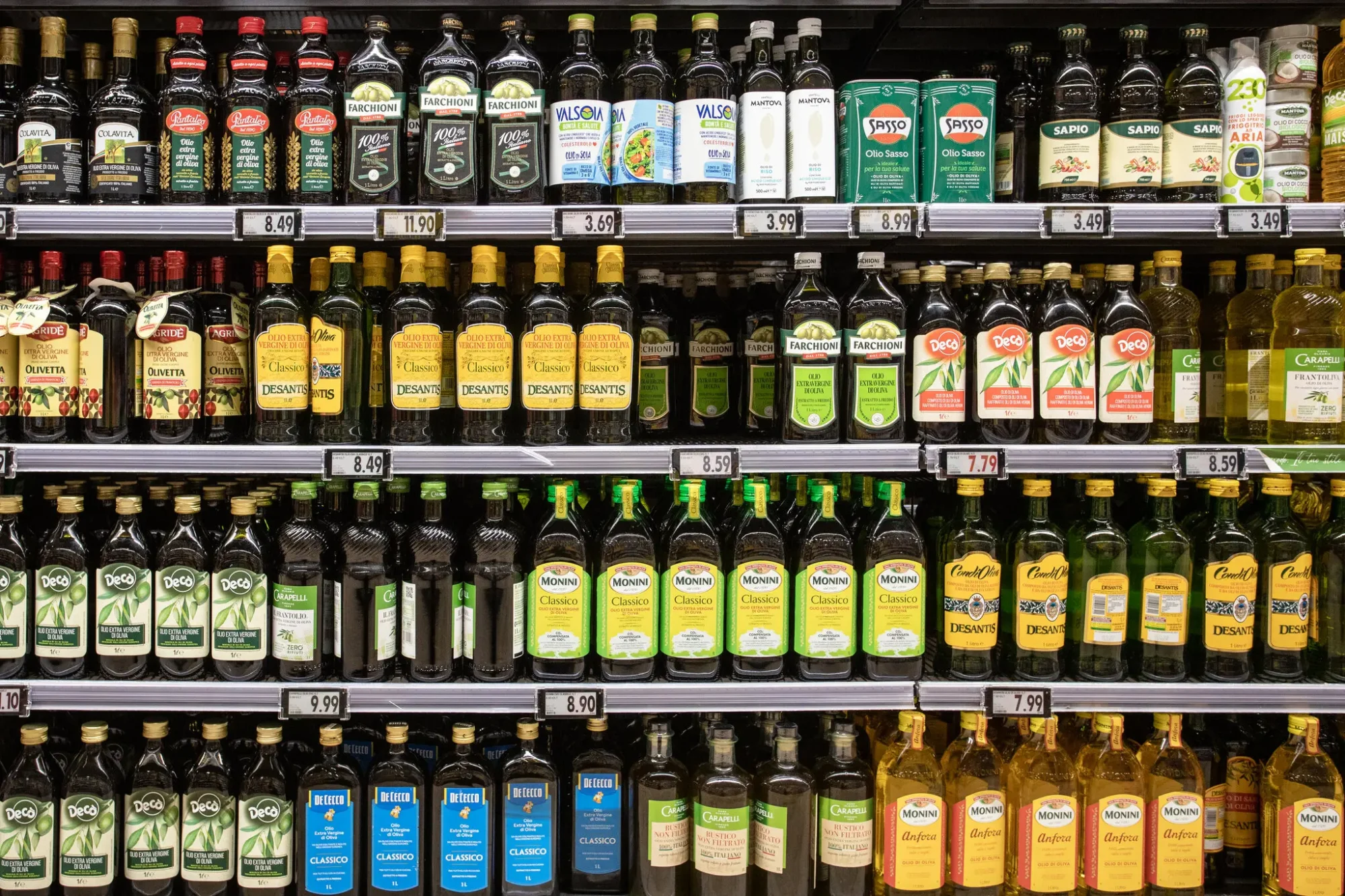Two decades ago, Romain and Marie‑Charlotte Piro began producing small‑batch olive oil in southern Tuscany, shipping almost exclusively to the exploding U.S. market, where Americans consume nearly 400,000 tonnes of olive oil annually—about 95% of which is imported. Their gourmet half‑liter sells for $56, finds homes in Michelin‑starred restaurants, and initially thrived. However, President Trump’s new tariffs on European imports—including a recently finalized 15% olive oil tax—have triggered financial strain for small producers like Olio Piro. That forced the siblings to accelerate expansion plans into Canada, Germany, and Japan. With limited capital and no resilience against tariff shocks, they are now pivoting quickly to other markets.
Olive Oil Tariffs Raise Consumer Prices and Disrupt Trade
Despite negotiations delivering a 15% tariff instead of an earlier threatened 30%, small European olive oil producers face a steep new cost when exporting to the U.S. As the European Commission continues discussions on exemptions, uncertainty prevails. Large producers like Spain’s Deoleo, which relies on U.S. sales for over 25% of its revenue, are warning consumers to expect price hikes. Meanwhile, the U.S. domestic olive output—just 5% of demand, mostly in California—is insufficient to fill the gap. The North American Olive Oil Association continues to press for tariff exemptions, emphasizing olive oil as a health food essential to U.S. consumers.
Small Producers Adapt by Going Global
Olio Piro made just $500,000 in revenue last year, but moved fast: hiring an export manager, attending trade shows, translating their website, and investing €150,000 in global growth. Unlike larger producers who ship year-round, Piro’s small scale allows them to await market clarity—they will ship their October harvest in January, giving them time to assess final USD tariffs before deciding shipment volumes to the U.S. or alternative markets such as Canada. Their strategy reflects creative survival planning in the face of volatile international policy.
Big Picture: Why U.S. Tariffs Hurt Americans Too
Trump has argued that domestic tariffs will boost U.S. jobs, but experts such as consumer analyst Randy Burt of AlixPartners point out that olive trees only thrive in climates like California. Even if planting increases, any mature response would take years. In the short term, American consumers face higher grocery bills and may shift to cheaper oils like canola or sunflower. As the International Monetary Fund highlights, such protectionist policies often lead to unintended market distortions and retaliatory responses.







